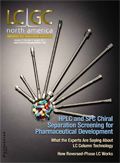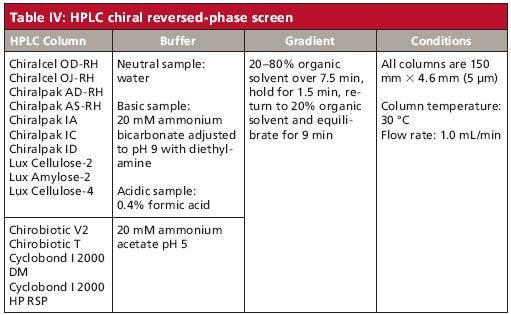Peaks of Interest
Trajan Scientific and Medical Acquires Chromatography and Liquid Handling Business Areas of SGE Analytical Science
Trajan Scientific and Medical Acquires Chromatography and Liquid Handling Business Areas of SGE Analytical Science
Trajan Scientific and Medical (Victoria, Australia) has completed the acquisition of the chromatography and liquid handling businesses of SGE Analytical Science (Ringwood, Victoria, Australia).
SGE was founded in 1961 in Australia by Ern Dawes, and has remained within the Dawes family for more than 50 years. The business has grown to 300 staff members worldwide, with manufacturing operations in Ringwood, Australia, and subsidiary offices in the United States, Europe, and Japan. Under the terms of the agreement, Trajan has acquired these sites along with all share holdings.
"Trajan's goal is to bring together a group of leading companies with a common focus in the areas of biological, environmental, and food analysis. SGE is an ideal platform for Trajan, with a global footprint and a depth of capability and infrastructure, servicing the leading companies in analytical science," said Stephen Tomisich, CEO of Trajan.
FDA Takes Steps to Help Ensure the Safety of Imported Food
In an effort to implement the bipartisan Food Safety Modernization Act (FSMA) signed by President Obama, the United States Food and Drug Administration (US FDA) announced two proposed rules aimed at helping to ensure that imported food meets the same safety standards as food produced in the United States.
The proposals are part of the FSMA approach to modernizing the food safety system for the 21st century. The FSMA focuses on preventing food safety problems, rather than relying primarily on responding to problems after the fact.
Under the proposed rules, importers would be accountable for verifying that their foreign suppliers are implementing modern, prevention-oriented food safety practices, and achieving the same level of food safety as domestic growers and processors. The FDA also is proposing rules to strengthen the quality, objectivity, and transparency of foreign food safety audits on which many food companies and importers currently rely to help manage the safety of their global food supply chains.
The new measures respond to the challenges of food safety in today's global food system. Imported food comes into the United States from about 150 different countries and accounts for about 15% of the United States' food supply, including about 50% of the fresh fruits and 20% of the fresh vegetables consumed by Americans.

Determining Enhanced Sensitivity to Odors due to Anxiety-Associated Chemosignals with GC
May 8th 2025Based on their hypothesis that smelling anxiety chemosignals can, like visual anxiety induction, lead to an increase in odor sensitivity, a joint study between the University of Erlangen-Nuremberg (Erlangen, Germany) and the Fraunhofer Institute for Process Engineering and Packaging (Freising, Germany) combined behavioral experiments, odor profile analysis by a trained panel, and instrumental analysis of odorants (gas chromatography-olfactometry) and volatiles (gas chromatography-mass spectrometry).
Investigating 3D-Printable Stationary Phases in Liquid Chromatography
May 7th 20253D printing technology has potential in chromatography, but a major challenge is developing materials with both high porosity and robust mechanical properties. Recently, scientists compared the separation performances of eight different 3D printable stationary phases.
Detecting Hyper-Fast Chromatographic Peaks Using Ion Mobility Spectrometry
May 6th 2025Ion mobility spectrometers can detect trace compounds quickly, though they can face various issues with detecting certain peaks. University of Hannover scientists created a new system for resolving hyper-fast gas chromatography (GC) peaks.

.png&w=3840&q=75)

.png&w=3840&q=75)



.png&w=3840&q=75)



.png&w=3840&q=75)









